PHONE US: (778) 484 1484

Preventing Dental Emergencies: What You Need to Know
June 24, 2025 by Dr. Mark Provencher
Dental emergencies can be painful, stressful, and often happen when you least expect them.
Whether it’s a sudden toothache, a chipped tooth, or a knocked-out tooth from a weekend sports game, these situations require urgent attention.
Fortunately, preventing many other types of dental emergencies is possible with the right habits and precautions.
At Kelowna Dental Solutions, we’re here to help with urgent issues and everyday upkeep, but we believe prevention is the best medicine. Here’s what you need to know to avoid preventable dental emergencies and keep your smile healthy and pain-free.
Stick to a Strong Oral Hygiene Routine
Preventing dental emergencies starts at home. It begins with hygiene. Brushing at least twice a day using a good electric toothbrush with a fluoridated toothpaste, flossing daily, use of a water flosser, and using an antibacterial mouthwash can help keep your teeth and gums healthy. These habits prevent the buildup of plaque, which can lead to cavities, gum disease, and infections that may require emergency care to deal with the resultant pain or mechanical failure.
Try your very best not to skip your routine—even when life gets busy. Consistency is key.
Don’t Ignore Small Problems
A minor toothache or sensitivity might seem like no big deal, but it could be a warning sign of something more serious. Left untreated, small issues can escalate into major emergencies like abscesses or severe decay.
If something feels off, contact us at Kelowna Dental Solutions. We can diagnose and treat problems early before they become urgent. Remember, the more advanced the pain and dysfunction, the more complicated and costly the solutions are likely to be.
Wear a Mouthguard During Sports
If you or your child play contact sports, wearing a custom-fitted mouthguard is essential. Mouthguards prevent dental emergencies like broken or knocked-out teeth.
Custom mouthguards from your dentist offer better comfort and protection than store-bought versions.
Avoid Chewing Hard Objects
Chewing on ice, pens, hard candies, or using your teeth to open packaging can crack or chip your teeth. These actions may not hurt right away, but they can weaken your enamel over time and lead to fractures or breakage.
Keep sugar-free gum handy to satisfy the urge to chew, and always use the proper tools—not your teeth—for opening items.
Schedule Regular Dental Visits
Routine dental checkups allow us to catch potential issues before they become emergencies. Professional cleanings also remove tartar buildup that brushing and flossing can’t reach.
For most patients, we recommend a dental exam and cleaning every six months. We’ll let you know if your smile needs more frequent care.
Understand the Role of Diet in Dental Health
What you eat plays a big role in the health of your teeth and gums. Sugary and acidic foods and beverages—like soda, candy, citrus fruits, ketchup, and energy drinks—can weaken enamel and increase the risk of decay and sensitivity.
Smart Choices:
-
Drink water throughout the day, especially after meals.
-
Snack on crunchy fruits and vegetables like apples and carrots, which naturally clean teeth.
-
Limit sugary treats to mealtime, when saliva production is higher, to help neutralize acids.
Know What to Do in a Dental Emergency
Even with the best prevention, accidents happen. Knowing how to respond can make all the difference.
-
Toothache: Rinse with warm salt water, keep the area as clean as possible, and contact us ASAP.
-
Knocked-out tooth: Gently rinse it with water (don’t scrub it), keep it moist (in milk or saliva), and get to our office within 30 minutes if possible.
-
Broken tooth: Rinse your mouth (gently), apply a cold compress, and bring any fragments with you.
When to Visit the Emergency Room vs. the Dentist
Not all dental emergencies need a trip to the ER. Knowing where to go can save time and ensure the right care.
Go to the Dentist For:
-
Toothaches
-
Broken or knocked-out teeth
-
Lost fillings or crowns
-
Dental abscesses (mild to moderate)
Go to the ER If:
-
You have severe facial trauma or bleeding that won’t stop
-
Swelling is affecting your ability to breathe, see, or swallow
-
You experience a high fever with facial swelling
At Kelowna Dental Solutions, we’re here not only to treat dental emergencies but to help you avoid them in the first place. From personalized care to preventive education, we’re committed to your long-term oral health.
If you have questions, want to book a preventive checkup, or need urgent care, don’t hesitate to reach out. Let’s keep your smile strong, healthy, and emergency-free.
*Illustrative image generated with AI.
Invisalign vs. Traditional Braces: Which is Right for You?June 12, 2025
When it comes to achieving a straighter smile, modern orthodontic treatment offers more options than...
Read MoreA Day in the Life of a Dental Hygienist: The Unsung Heroes of Oral HealthJanuary 13, 2025
When you think of dental care, images of dentists wielding drills and bright lights might come to mind. Howev...
Read More